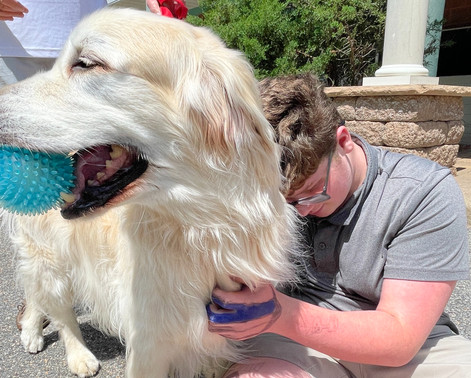A Hug Makes Everything Better, Doesn’t It?
- Laura Livingston
- May 5
- 1 min read
Updated: May 6
Neurodivergence can often bring intense emotions. What can we as parents and teachers do to support children during times of dysregulation? Clinical psychologist Joel Nigg recommends explicit instruction and environmental supports:
Re-directing attention or creating a distraction is a good short-term solution. Humor can be helpful here. If a particular situation needs to be revisited, it can be done when things are calmer.
Teaching children to mentally reframe situations can reduce ADHD sensitivity. For instance, looking at pictures with a child and helping them think about the variety of reasons someone could be feeling that way can decrease worst-case thinking.
Dr. Nigg also recommends “building a mental framework” to develop strategies for recurring, stressful situations such as keeping earbuds nearby or going to a trusted adult for support. As Dr. Nigg says, “With a plan, it is much easier to maintain an emotional match to the situation and reduce overwhelm.”
Here at Radcliffe Creek School, we help all students develop emotional resilience. We provide explicit instruction in emotional recognition for younger students and emotional regulation support for older ones. Additional supports include small groups using BrainTalk and Superflex curricula, a designated Calm Cove, and weekly visits from therapy dogs. Finally, we take exercise and outdoors time seriously, and have recently added an outdoor classroom and nature trail to our campus. By helping our students learn to manage their emotions, we give them tools that allow their strengths to shine through.













